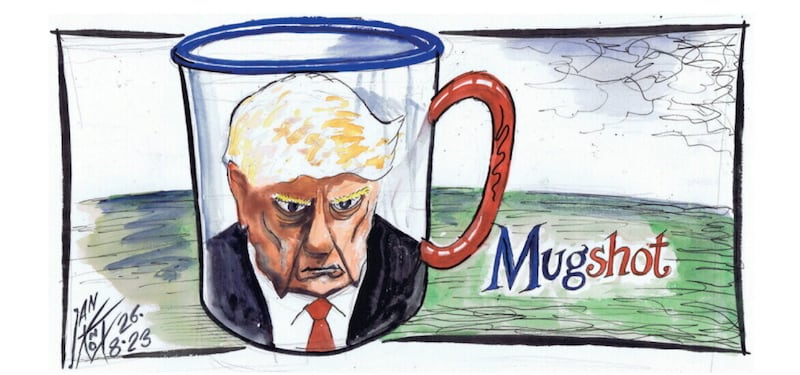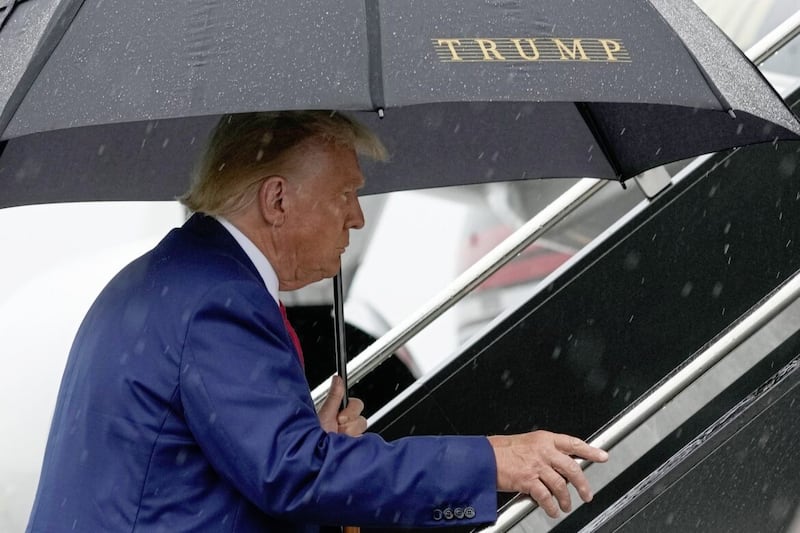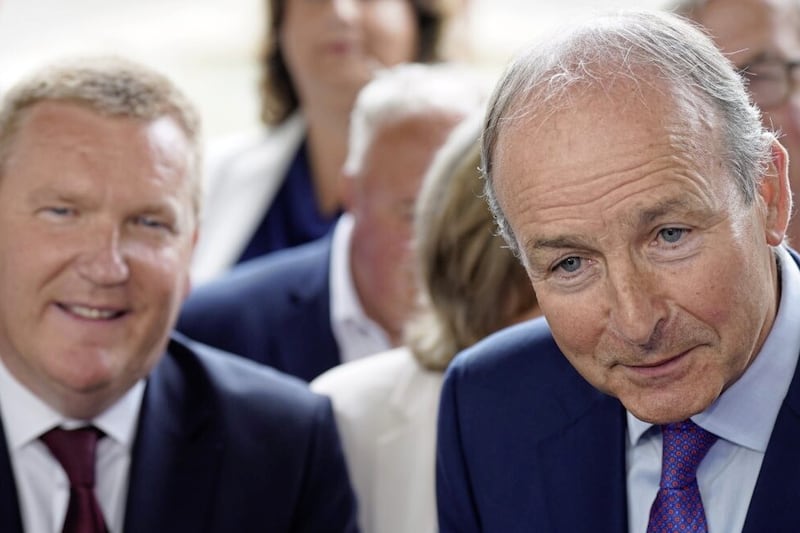I understand how people can turn to religion and rather than use it as a tool to manage how they live their lives, become enmeshed in it and see it as their single focus to convert everyone around them to their one true faith.
And I understand how people can get caught up in an artist’s music and how it can develop into a super-fandom of travelling to the artist’s concerts, owning their entire collection of recordings, all the merchandise and posters on the bedroom wall.
But I just don’t get the cult of Donald Trump. I cannot understand how a man with multiple failed businesses behind him convinced voters that he could make America great again and bring back industries that had long since realised that productivity and profitability were better elsewhere.
His arrogance as a reality TV star knew no bounds as he went beyond bossy right to belittlement. This was not someone who right-thinking men could look up to or who women would want to be left alone in a room with.
Read more:
Patricia MacBride: Lord Kilclooney tweet shows GAA brings out the best in all of us
This week, a judge in Washington DC set a trial date of March 4 2024 for Trump’s trial on charges of attempting to overturn the results of the 2020 election. He was charged in a four-count indictment earlier this month.
As well as this he has also been charged with the federal crime of retaining classified documents at his Florida home in Mar-a-Lago and is due to stand trial on those charges in May 2024.
In New York he is charged with falsifying business records in connection with a hush money payment to a porn actor who alleges she had an extramarital affair with Trump.
And prosecutors in Georgia have charged Trump and 18 others in a racketeering conspiracy aimed at undoing that state’s 2020 election.
Despite all this, Trump is still the front-runner for the 2024 Republican presidential nomination.
Last week, in the first televised debate between the other eight candidates for the nomination, they were asked would they support Trump if he received the party nomination, even if he was convicted. Six of them raised their hands. Six people confirmed they were happy that a convicted felon might be President again.
That is bonkers and I am also not entirely convinced that some of them did it just because they were afraid of the public backlash from Trump if they hadn’t.
When he ran for office in 2016, Trump positioned himself as a political outsider who was not part of the establishment. Many people were frustrated with the perceived gridlock and inefficiency of the government, and Trump’s outsider status appealed to those who wanted a change from the status quo.

He tapped into a broader anti-establishment sentiment that was growing in the United States and portrayed himself as a disruptor who was willing to challenge the traditional conventions of politics. And challenge them he did.
But Trump did not unite America in his four years; he oversaw even deeper division – politically, economically and socially.
The masculine form of Karen is Donald. He is the stereotypical entitled white person who believes that their rights are more important than anyone, that their personal wishes come before anyone else. He has weaponised his own privilege against bereaved military families, people of colour, women and migrants. In doing so, and in being let off the hook for it for so long, he has created an environment in the United States where behaviour like this is not only expected but accepted.

There is a perception in the United States that Irish people are more inclined to support the Democratic party and don’t like the Republican party. This comes from the fact that Irish immigrants to America who became police officers, firefighters, construction workers and teachers joined unions to protect their rights and those unions, in turn, held significant political influence. Workers supported the Democratic Party, where a mix of charity and patronage kept the political system running.
That had to change, but instead of Irish Americans focussing on reforming the party that was its natural home, many jumped ship and became Republican. House Speaker Kevin McCarthy, for example, made the journey from being the great-grandson of Catholic immigrants from County Cork to being the first Republican in his family and is a member of the Baptist faith.
Neither his political outlook nor his faith is an issue, what’s of concern is that he is an ally of a Georgia Congresswoman who once said that Satan controlled the Catholic Church and who referred to the “Islamic invasion into our government” after the election of two Muslim women to Congress.
Many Republican law makers in private feel it would be a disaster if Trump won the nomination because they know he would drive his own vanity projects through government once again rather than dealing with issues that need to be dealt with. Four more years of national division and polarisation is not what grassroots Republicans that I have spoken to want.
With Trump’s trial set to begin the day before Super Tuesday, when around a third of delegates vote for their nominee, it will be worth watching whether his fellow Republicans can stomach the spectacle and allow America descend into a permanent reality TV show.
The rest of us are hoping that someone in the GOP with a bit of respect for their country will point the finger at Donald and, in his own words, tell him: “You’re fired.”







